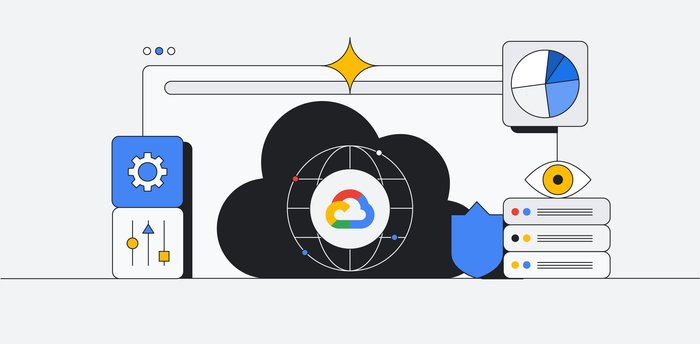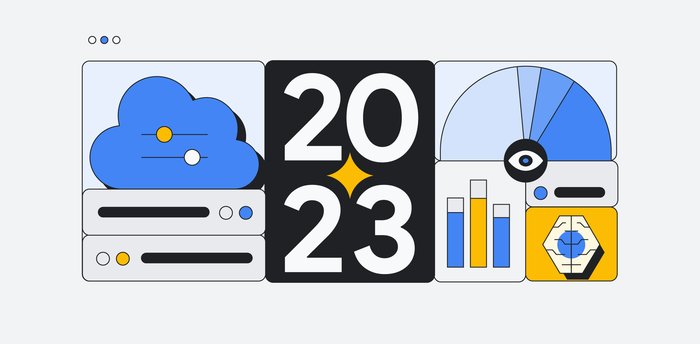Kubernetes 1.10: an insider take on what's new
Craig Box
Advocacy Lead, Google Cloud
The Kubernetes community today announced the release of Kubernetes 1.10, just a few weeks since it graduated from CNCF incubation. As a founding member of the CNCF and the primary authors of Kubernetes, Google continues to be the largest contributor to the project in this release, as well as reviewer of contributions and mentor to community members. At Google we believe growing a vibrant community helps deliver a platform that's open and portable, so users benefit by being able to run their workloads consistently anywhere they want.
In this post, we highlight a few elements of the 1.10 release that we helped contribute to.
Container storage plugins
The Kubernetes implementation of the Container Storage Interface (CSI) has moved to beta in Kubernetes 1.10. CSI enables third-party storage providers to develop solutions outside of the core Kubernetes codebase. Because these plugins are decoupled from the core codebase, installing them is as easy as deploying a Pod to your cluster.Saad Ali (chair of SIG-Storage) is a primary author of both the CSI specification and Kubernetes' implementation of the specification. "Kubernetes provides a powerful volume plugin system that makes it easy to consume different types of block and file storage,” he explains. “However, adding support for new volume plugins has been challenging. With the adoption of the Container Storage Interface, the Kubernetes volume layer is finally becoming truly extensible. Third-parties can now write and deploy plugins exposing new storage systems in Kubernetes without ever having to touch the core Kubernetes code. Ultimately this will give Kubernetes and Kubernetes Engine users more options for the storage that backs their stateful containerized workloads."
Custom resolver configuration
A key feature of Kubernetes is being able to refer to your Services by a simple DNS name, rather than deal with the complexities of an external discovery service. While this works great for internal names, some Kubernetes Engine customers reported that it caused an overload on the internal DNS server for workloads that primarily look up external names.Zihong Zheng implemented a feature to allow you to customize the resolver on a per-pod basis. "Kubernetes users can now avoid this trade-off if they want to, so that neither ease of use nor flexibility are compromised," he says. Building this upstream means that the feature is available to Kubernetes users wherever they run.
Device plugins and GPU support
Also moving to beta in 1.10 are Device Plugins, an extension mechanism that lets device vendors advertise their resources to the kubelet without changing Kubernetes core code. A primary use case for device plugins is connecting GPUs to Kubernetes.Jiaying Zhang is Google's feature lead for device plugins. She worked closely with device vendors to understand their needs, identify common requirements, come up with an execution plan, and work with the OSS community to build a production-ready system. Kubernetes Engine support for GPUs is built on the Device Plugins framework, and our early access customers influenced the feature as it moved to production readiness in Kubernetes 1.10.
API extensions
Googler Daniel Smith (co-chair of SIG API Machinery) first proposed the idea of API extension just a couple months after Kubernetes was open-sourced. We now have two methods for extending the Kubernetes API: Custom Resource Definitions (formerly Third-Party Resources), and API Aggregation, which moves to GA in Kubernetes 1.10. Aggregation, which is used to power ecosystem extensions like the Service Catalog and Metrics Server, allows independently built API server binaries to be hosted through the Kubernetes master, with the same authorization, authentication and security configurations on both. “We’ve been running the aggregation layer in every Google Kubernetes Engine cluster since 1.7 without difficulties, so it’s clearly time to promote this mechanism to GA,” says Daniel. "We’re working to provide a complete extensibility solution, which involves getting both CRDs and admission control webhooks to GA by the end of the year.”Use Kubernetes to run your Spark workloads
Google's contributions to the open Kubernetes ecosystem extend farther than the Kubernetes project itself. Anirudh Ramanathan (chair of SIG-Big Data) led the upstream implementation of native Kubernetes support in Apache Spark 2.3, a headline feature in that release. Along with Yinan Li, we are hard at work on a Spark Operator, which lets you run Spark workloads in an idiomatic Kubernetes fashion.Paired with the priority and preemption feature implemented by Bobby Salamat (chair of SIG-Scheduling) and David Oppenheimer (co-author of the Borg paper) you'll soon be able to increase the efficiency of your cluster by using Spark to schedule batch work to run only when the cluster has free resources.
Growing the community
We’re also heavily invested in mentoring for the Kubernetes project. Outreachy is an internship program that helps traditionally underrepresented groups learn and grow tech skills by contributing to open-source projects. Kubernetes' SIG-CLI participated in Outreachy over the 1.10 timeframe with Google's Antoine Pelisse as mentor. With his help, Yolande Amate from Cameroon and Ellen Korbes from Brazil took on the challenge of making improvements to the "kubectl create" and "kubectl set" commands.With the internship over, Ellen is now a proud Kubernetes project member (and has written a series of blog posts about her path to contribution), and Yolande continues to submit PRs and is working toward her membership.
1.10 available soon on Kubernetes Engine
This latest version of Kubernetes will start rolling out to alpha clusters on Kubernetes Engine in early April. If you want to be among the first to access it on your production clusters, join our early access program today.If you haven’t tried GCP and Kubernetes Engine before, you can quickly get started with our $300 free credits.


